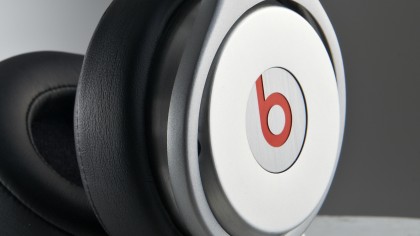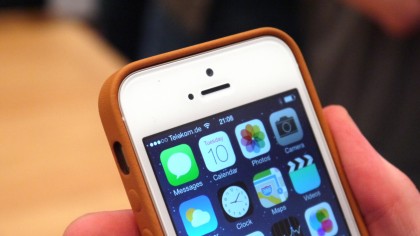The future of Apple: will it be doom or boom?
Is Apple to big too fail? Not if analysts get their way
Sign up for breaking news, reviews, opinion, top tech deals, and more.
You are now subscribed
Your newsletter sign-up was successful
Huge opportunity
Hopefully, that isn't true – perhaps a huge opportunity lies outside the computing industry (much like the way Nintendo has announced it will move into health products to expand its business, for example) – but even if it is, it's no harbinger of Apple's doom, because every year, Apple dramatically improves its existing products. There is innovation to be found in battery life, convenience and usability, and ignoring that is what Apple's competitors get wrong. And it's why the company doesn't just throw out any old watch or TV concept and call it a finished products – look at the scathing reviews of Samsung's Gear Fit.
You just have to look at its acquisition of Beats to see that some of its focus is already moving away from rectangular products.

"I think for Apple, the pressure is to get it right," Carolina Milanesi, of consumer insight firm Kantar WorldPanel, told CNBC. "It's not so much getting in quickly, it's getting in there the right way… It's not in Apple's style to rush things, especially when it's part of the bigger picture." Perhaps that's the real innovation, in an industry that's happy to throw any old product at the wall.
The Steve situation
Articles that berate Apple for its inability to innovate any more often attribute the 'problem' to a common cause: co-founder Steve Jobs is no longer leading the company. "If Jobs was the star, Cook was the stage manager," wrote Yukari Iwatani Kane, author of Haunted Empire, Apple After Steve Jobs. "If Jobs was idealistic, Cook was practical. But without Jobs, Cook had no counterweight to his dogged pragmatism. Who would provide the creative sparks?"
Kane's thoughts here are the latest in a line of accusations that Jobs was responsible for everything good that came out of Apple. "I don't think it's a coincidence that the iPhone 5, the first iPhone to be developed after Steve Jobs's passing, seems to lack a comparable sales pitch [to Siri or a Retina display]," wrote Timothy B Lee for Forbes in 2012, a statement that naïvely suggests that Apple plans no more than a year ahead in its iPhone developments.
"The more responsibility Cook took on in the nuts-and-bolts parts of Apple, the more Jobs was freed up for his creative endeavours. Released from customer service and retail management, Jobs spent the last decade of his life dreaming up the iPod, iPhone and iPad," wrote Adam Lashinsky, author of Inside Apple.
But we know that Steve Jobs was only part of the creation of these devices: famous Apple names such as Tony Fadell, Scott Forstall and of course Jony Ive – never mind hundreds more – played vital roles in making them what they are. Though Jobs no doubt provided a huge amount of direction to the iPhone, elevating his role to that of 'inventor' is a pernicious dismissal of the brilliant work of others.
Sign up for breaking news, reviews, opinion, top tech deals, and more.

Kane asks who will provide the creative sparks for Apple now, but it seems to be Jony Ive who fits that role, taking responsibility for both software and hardware design now. Like Jobs, it appears that Ive's position is away from the actual running of the company: Craig Federighi manages software engineering, Eddy Cue manages services, Dan Riccio makes the hardware designs work, and Jeff Williams and Tim Cook make all the pieces come together. You can't replace Jobs' spark, but Apple has done the closest thing by making sure his most trusted creative partner has taken up his torch.
Jobs considered Apple his greatest creation, and as long as it continues to hold dear the philosophies that made it great, it will thrive.